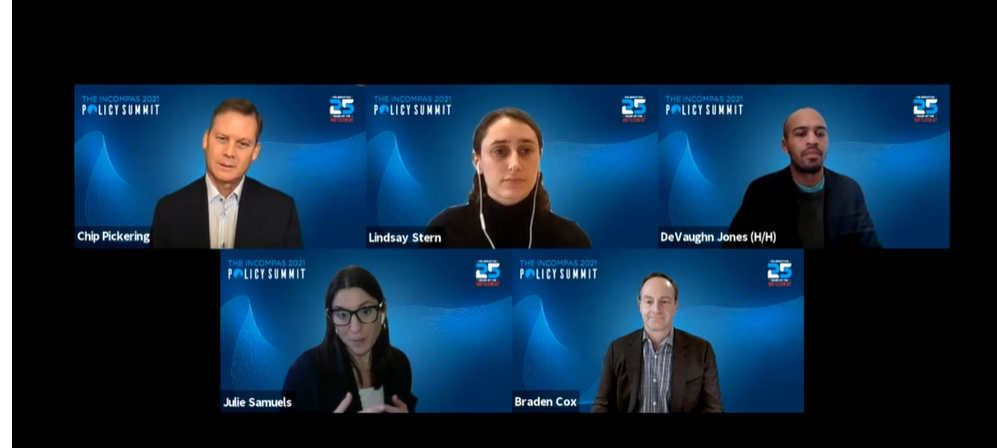Tread Carefully if Section 230 is to Be Changed, Experts Say at INCOMPAS Event
February 8, 2021—Amending too rashly or quickly the internet intermediary liability provision of the Telecommunications Act will harm smaller companies and new entrants but won’t have the intended impact on larger players, according to experts. Former President Donald Trump has often complained abou
Benjamin Kahn

February 8, 2021—Amending too rashly or quickly the internet intermediary liability provision of the Telecommunications Act will harm smaller companies and new entrants but won’t have the intended impact on larger players, according to experts.
Former President Donald Trump has often complained about big technology companies alleged control over speech on the internet, especially in the wake of Twitter adding disclaimers on his misleading tweets and then banning him for allegedly inciting the Capital riot last month.
Trump and other conservatives have sought revocation of Section 230 of the Communications Decency Act that shields these companies from liability for content posted on their platforms.
On the 25th anniversary of the Telecommunications Act, experts wrangled with the question of whether Section 230 should be reformed and, if so, to what degree.
On Monday, the Internet and Competitive Networks Association, also known as INCOMPAS, hosted a panel of experts to further dissect some of the consequences of repealing or reforming Section 230, which has been discussed in past events.
Julie Samuels, founder and executive director of Tech: NYC, said at the INCOMPAS event that Section 230 should not be altered lightly, and that changes to its current state could have significant consequences for small platforms.
“If we do see drastic reform or even, frankly, moderate reform to Section 230…larger companies will be able to comply,” Samuels continued. “They have the resources to comply. Who doesn’t have the resources to comply? Smaller startups, nonprofit organizations, [and] marginalized voices.”
Proceed with caution on Section 230 changes
This is not to say that Samuels does not believe that no changes should be made to Section 230; Samuels made it clear that her chief concern is that Congress or the National Telecommunications and Information Administration, an agency of the commerce department, would “come in with a sledgehammer, when what they really need is a scalpel.”
She reminded the audience that Section 230 was designed to address concerns associated with large corporations, yet it will ultimately be the smaller organizations that end up paying the price. More than that, Samuels emphasized that amending Section 230 would impact companies that don’t even exist yet. “What we’re in theory doing [by amending Section 230] is creating potential barriers to entry that are incredibly difficult to surmount.”

Screenshot of from the INCOMPAS Policy Summit
Samuels specifically pointed to Sen. Mark Warner, a Democrat from Virginia, who is proposing legislation that allegedly could hurt small companies. Senator Warner’s bill would effectively change Section 230 into an affirmative defense, meaning that the companies in question would need to provide evidence that they did not violate the law, she said. While large companies could afford to litigate issues like this in court, small companies would have significantly more trouble doing so.
Pinterest’s Head of U.S. Public Policy and Social Impact, Braden Cox, pointed out that there is a common misconception that Section 230 could be amended so that it could somehow only effect large companies. The reality is, he said,it effects all online media.
Other say Section 230 is good as it is
Attorney and policy advisor for INCOMPAS Lindsay Stern, however, said one of the primary goals of Section 230 is to promote competition in the online landscape, and it has succeeded in the regard.
“The ability to host and moderate [third party] content in good faith is good for competition because it allows websites to differentiate themselves by what they allow.” Stern emphasized that altering Section 230 could remove this benefit.









Member discussion